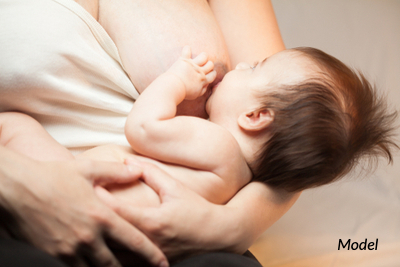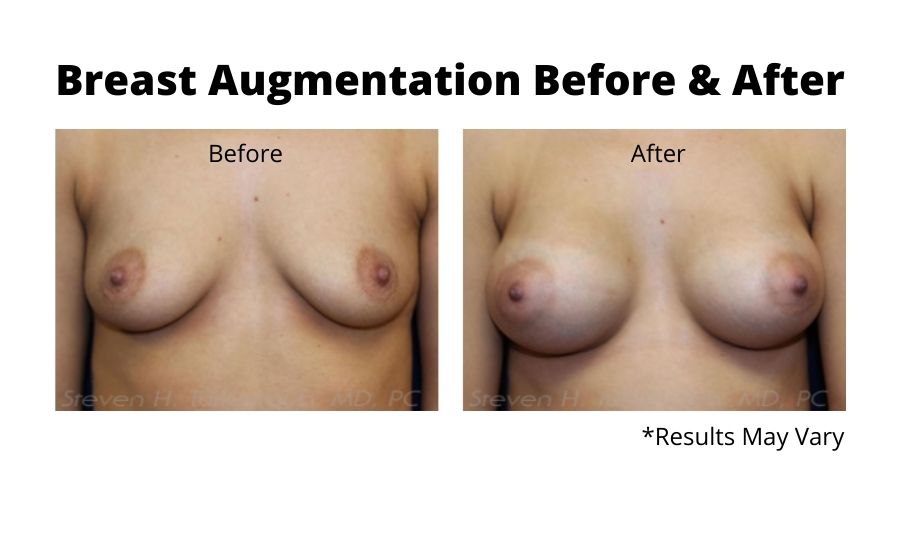Home|Blog | Will Breastfeeding Ruin My Breast Augmentation?
Will Breastfeeding Ruin My Breast Augmentation?
It is quite natural to wonder if breastfeeding will have a permanent impact on the appearance of your breasts. This level of concern may be even more acute if you have already undergone a breast augmentation. After all, this was a significant emotional and financial investment and you want to preserve the results as much as possible.
How Will Breastfeeding Change the Appearance of My Breasts?
While implants typically have no impact on your ability to breastfeed, the physical shape of your breasts likely will change because breastfeeding affects the breast tissue and skin that surround the implants. These changes will depend on several factors, including the following:
Genetics
Some women’s tissues are more likely to return to normal after breastfeeding than others. You may be predisposed to sagging breasts after breastfeeding due to your genetics despite trying to do everything under your control to avoid such an outcome. Close female relatives who have breastfed may provide you with some general idea of what your breasts may look like though this is still far from being accurate.
Weight Changes
Weight gain during pregnancy plays a role in how your breasts will look afterward. If your breasts increased several cup sizes during pregnancy and breastfeeding and then decreased rapidly, your skin may have a greater tendency to sag due to loss of elasticity and structural support. Profuse weight gains versus prudent and limited ones during pregnancy are more likely to adversely impact the appearance of your breasts long term.
Total Length of Time Breastfeeding
The longer the total time that you have breastfed the more likely it is that your breasts will ultimately be saggier, atrophic, and even deflated in appearance. For example, breastfeeding a few children for a total time of three years will surely wreak aesthetic havoc on your breasts as compared to just doing it for one to two months.
Why Is Breastfeeding Traumatic on the Breasts?
During pregnancy, the breasts increase in size and remain engorged while breastfeeding. This causes a substantial amount of stretching and stress on the breast tissue along with the increased weight and effects of gravity.
When you stop breastfeeding, your breasts may return to their pre-pregnancy size—or they may not. Unfortunately, when the glandular tissues within your breasts shrink in size, the surrounding skin does not always follow suit. This can lead to lax, droopy skin and breast tissue with a loss of perkiness.
Will I Benefit From Breast Revision or Breast Lift Surgery?
Because of the changes that take place in the breasts, you may benefit from breast revision or breast lift surgery.
What Is Breast Revision Surgery?
The changes in the appearance of your breasts following pregnancy and breastfeeding may motivate you to have them rejuvenated through breast revision surgery. Depending on what you have been left with and what your goals are, this could include a breast implant exchange with a larger or smaller size or even a little different shape. It may also involve a breast lift (mastopexy) or an explantation with or without a concomitant breast reduction if you have permanently gained a substantial amount of weight, resulting in your breasts being far larger than you would like them to be.
What Is Breast Lift Surgery?
Sagging of the breasts is a common problem after breastfeeding regardless of whether or not you have implants. Because the natural tissues lose volume and/or elasticity after breastfeeding, the remaining tissue may become displaced around the implants, making the breasts appear empty and flat. Breast lift surgery is the best option to correct sagging breasts.
Want to Learn More?
If you are interested in investigating your options, you can schedule a complimentary consultation with Dr. Turkeltaub at Arizona Breast Center by calling (480) 451-3000 or filling out our online contact form.
